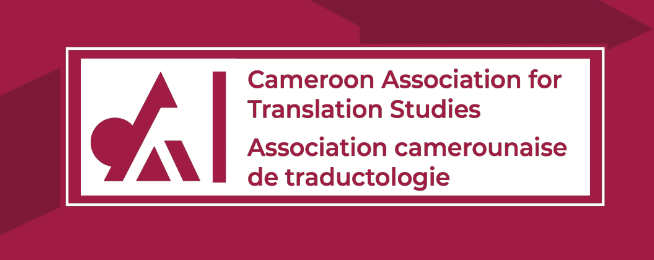
1st ACTRAductologie Conference : “Surviving as a translator and as interpreter in times of crises” (Hybrid)
ACTRAductologie Conference #1:
“Surviving as a translator and as interpreter in times of crises”
An international event hosted by
The Cameroon association for translation studies (CATRAS)
In partnership with the Advanced School of Translators and Interpreters (ASTI)
CALL FOR PAPERS
Over the last thirty years or so, the cultural dimension has gained momentum in translation studies (Bassnett & Lefevere, 1990) becoming a critical turning point in the field (Snell-Hornby 2006) and highlighting issues of hybridity, transferability and appropriation in translation.
Besides, recent advances in artificial intelligence – its accelerated development and significant impact on translation – open up a variety of pathways for reflection. In legal, financial or medical translation, preferences are gradually shifting from the human translator to machine translation, particularly with the advent of “neural” machine translation (NMT) systems. In a context where professional training, translation memories and software abound, human translators faced with many challenges, (re)consider the survival of their profession. Should we then be alarmed? Shall we rather be optimistic, given that “what threatens translators the most is not artificial intelligence, because they will be able to adapt to, and take charge of, it; rather, it is the pressure to lower payment for services brought on by international competition and fuelled by a number of misconceptions about the translation operation” (Vandaele, 2018)?
From 11 to 13 July 2024, the Cameroon Association for Translation Studies (CATRAS) in partnership with the Advanced School of Translators and Interpreters (ASTI), will host its first international conference. The event aims to provide a space of mutual exchange and enrichment for the scholarly community and anyone interested in translation, interpretation and intercultural communication. How do translators survive in a world grappling with many challenges coming from all angles? This will be the key question participants will address throughout this scholarly gathering.
The conference is open to reflections on the following topics and not limited to:
- Translators and interpreters in crisis situation
- Teaching translation and interpreting in the era of AI
- The contribution of translators to the preservation of cultural heritages and endangered languages
- Translator, interpreter and gender-related issues
- The role of translator in disseminating literary works, promoting new genres, and developing diverse practices (including self-translation)
- Translation theories.
- Translation and Interpretation research methods.
- Translation and Interpretation research methods and pedagogical theories.
- Applied translation studies.
- Translation and Technology.
- Translation and Interpretation pedagogy.
- The ideal translator profile.
- Machine translation editing and revision.
Individual or joint contributions in the form of articles in English, French or Spanish (300-word abstracts, written and submitted in Microsoft Word), along with a short bio-note of the author(s) (200 words), should be sent to conference organisers, namely Oumarou Mal Mazou (mal.mazou@actraductologie.org), Carlos Djomo (carlos.djomo@actraductologie.org), and Caroline Ngono (caroline.ngono@actraductologie.org) by 31st January 2024. Selected authors will be given about 20 minutes to present their research during the thematic roundtable sessions. Participants will be invited to moderate the sessions. Selected contributions will be published as articles in volume 4 of >Critic, the Association’s journal (more information available at https://actraductologie.org/journal).
*****
PLENARY LECTURES
Three plenary lectures will be scheduled, one per day. So far, the following guest speakers have confirmed their attendance:
Georges L. Bastin, Université de Montréal, Canada Kathryn Batchelor, University College London, United Kingdom Sakwe George Botake, ASTI/University of Buea, Cameroon
*****
CONFERENCE PROGRAMME
The conference programme will be available on the Association’s dedicated page (https://actraductologie.org/actraductologie-1/) and in all dedicated platforms in due course.
*****
IMPORTANT DATES
- 31 January 2024: Deadline for submission of contributions
- 28 February 2024: Notification to authors
- 1st March 2024: Start of early bird registrations
- 10 May 2024: Start of standard registrations
*****
ORGANISING COMMITTEE
- Oumarou Mal Mazou, CATRAS/CIRTI/Université de Liège
- Carlos Djomo, CATRAS/ESIT/Université Sorbonne Nouvelle
- Caroline Ngono, CATRAS/University of Massachusetts
- Gandu Sébastien, ASTI/University of Buea
- Farida Dakhouche, University of Mons
*****
REGISTRATION
Early birds registration fees are as follows:
- €100 for professionals, lecturers and researchers;
- €50 for PhD, master or undergraduate students; and
- FREE for PhD, master, and undergraduate students who are duly registered members of CATRAS.
Late registration will be 40% higher. Registration fee covers logistics and coffee breaks during the three-day conference. Travel and accommodation costs are the responsibility of the participants. CATRAS has requested and obtained preferential rates at some hotels in the city.
*****
PRACTICAL INFORMATION
For further information, please get in touch with the organizing committee by emailing info@actraductologie.org.
*****
ADVISORY BOARD
- Paul Bandia, Concordia University
- Salah Basalamah, University of Ottawa
- Georges L. Bastin, Université de Montréal
- Kathryn Batchelor, University College London
- Djamel Goui, University of Ouargla
- Christine Pagnoulle, Université de Liège
- Charles Soh, ISTIC, Yaoundé
- Bernd Stefanink, Universidade Federal do Ceará
- Juan Miguel Zarandona, Universidad de Valladolid
*****
REFERENCES
- Bassnett, S. & Lefevere, A. (1990). Translation, history and culture. London: Printer Publishers.
- Snell-Hornby, M. (2006). The turns of translation studies: New paradigms or shifting viewpoints? Amsterdam/Philadelphia: John Benjamins.
- Vandaele, S. (2018). Intelligence artificielle et traduction: Quelle place pour les traducteurs humains?, UdeMNouvelles, retrieved 15 July 2023 from https://nouvelles.umontreal.ca/article/2018/11/29/intelligence-artificielle-et-traduction-quelle-place-pour-les-traducteurs-humains/